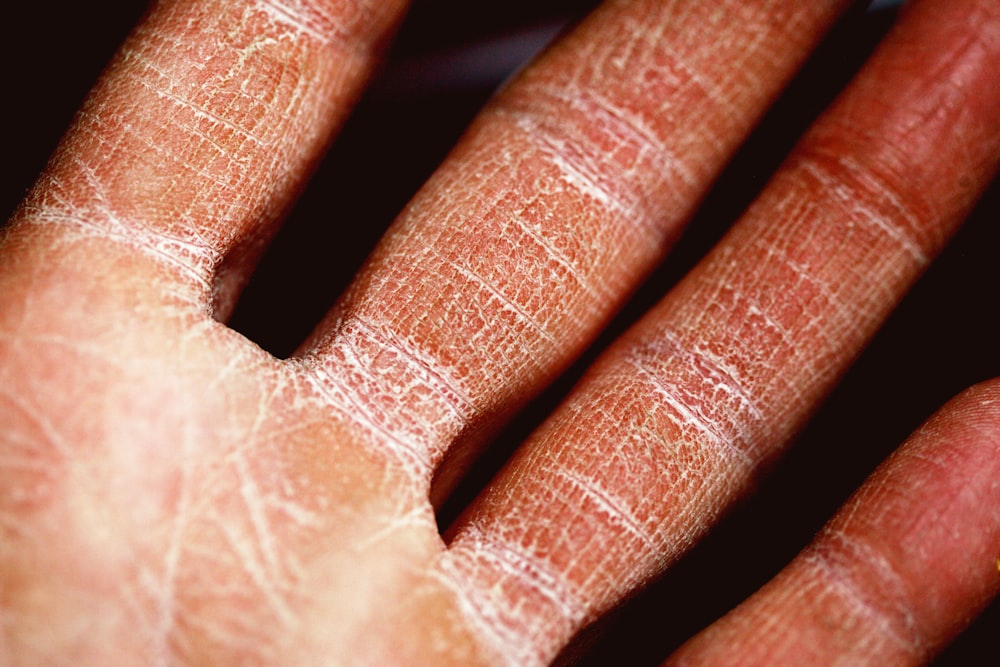Eczema Relief Effective Treatment Strategies
Eczema Relief: Effective Treatment Strategies
Understanding the Eczema Battle
Dealing with eczema can be a persistent battle, but effective treatment strategies can offer much-needed relief. Eczema, characterized by red, itchy skin, varies in severity, making finding the right approach crucial. Let’s explore some effective treatment strategies that can help soothe the discomfort and manage eczema symptoms.
Gentle Skincare: The Foundation of Relief
The first line of defense against eczema is adopting a gentle skincare routine. Harsh soaps and fragranced products can exacerbate symptoms, so opt for mild, fragrance-free cleansers and moisturizers. Keeping the skin hydrated is key, and applying moisturizer regularly, especially after bathing, can provide relief and prevent flare-ups.
Topical Steroids: Targeting Inflammation
In cases of acute flare-ups, topical steroids prescribed by a dermatologist can be a game-changer. These medications help reduce inflammation and alleviate itching. However, it’s crucial to use them as directed and under professional guidance to prevent potential side effects and ensure their effectiveness in managing eczema symptoms.
Emollients and Moisturizers: Hydration is Key
Hydration plays a pivotal role in managing eczema. Emollients and moisturizers create a protective barrier, locking in moisture and preventing the skin from drying out. Opt for products with ingredients like ceramides, which help repair the skin barrier. Regular application of emollients can contribute to long-term relief.
Avoiding Triggers: Personalized Care
Eczema triggers vary from person to person, making it essential to identify and avoid them. Common triggers include certain fabrics, harsh detergents, and specific foods. Keeping a journal to track flare-ups can help pinpoint triggers, allowing for a more personalized and effective approach to managing and preventing eczema symptoms.
Prescription Treatments: Beyond Topical Steroids
In more severe cases, dermatologists may recommend non-steroidal prescription creams or ointments. These may include calcineurin inhibitors, which also target inflammation and itching. Consulting with a healthcare professional ensures a tailored treatment plan based on the severity and individual characteristics of the eczema.
Antihistamines: Controlling Itchiness
The persistent itching associated with eczema can be challenging. Over-the-counter or prescription antihistamines can help control itching and improve sleep quality. However, it’s important to consult with a healthcare professional before incorporating antihistamines into your routine, as they can cause drowsiness.
Wet Wrap Therapy: Intensive Hydration
Wet wrap therapy involves applying a damp layer of bandages or clothing over moisturized skin. This intensive hydration technique helps soothe inflammation and reduce itching. It’s often used for severe flare-ups and can be performed under the guidance of a healthcare professional.
Phototherapy: Harnessing Light for Relief
Phototherapy, or light therapy, involves exposing the skin to ultraviolet light under controlled conditions. This treatment can help reduce inflammation and alleviate symptoms. While it requires professional supervision, phototherapy has shown effectiveness in managing eczema, especially for individuals with moderate to severe cases.
Mind-Body Connection: Stress Management
The mind-body connection is increasingly recognized in eczema management. Stress and anxiety can trigger flare-ups, so incorporating stress-reducing practices like meditation or yoga can complement traditional treatments. A holistic approach considers both physical and emotional well-being in the quest for eczema
Balancing Blood Sugar for Optimal Health
Unlocking the Secrets to Harmonious Blood Sugar Levels
Maintaining optimal blood sugar balance is a key factor in promoting overall health and well-being. In the hustle and bustle of daily life, it’s easy to overlook the importance of keeping our blood sugar levels in check. Let’s explore the strategies and lifestyle choices that contribute to a harmonious balance, ensuring a healthier and more energized you.
The Impact of Diet on Blood Sugar
One of the primary influencers of blood sugar levels is the food we consume. Adopting a balanced and nutritious diet is fundamental to achieving and sustaining blood sugar balance. Focus on incorporating whole grains, lean proteins, and plenty of fruits and vegetables into your meals. These foods release energy slowly, preventing sudden spikes or crashes in blood sugar levels.
Understanding Glycemic Index and Its Role
The glycemic index (GI) is a valuable tool in managing blood sugar. Foods with a low GI release glucose gradually, providing a sustained source of energy. On the other hand, high-GI foods cause rapid spikes in blood sugar. Being mindful of the glycemic index of foods can help you make informed choices, promoting stable blood sugar levels throughout the day.
Exercise as a Catalyst for Blood Sugar Regulation
Regular physical activity is not only beneficial for cardiovascular health but also plays a crucial role in blood sugar regulation. Exercise enhances insulin sensitivity, allowing cells to better respond to insulin and absorb glucose efficiently. Aim for a combination of aerobic exercises and strength training to optimize the positive effects on blood sugar balance.
The Role of Hydration in Blood Sugar Health
Staying adequately hydrated is often underestimated in its impact on blood sugar levels. Dehydration can lead to a rise in blood sugar concentration, emphasizing the importance of maintaining fluid balance. Make it a habit to drink water consistently throughout the day, supporting optimal hydration and contributing to stable blood sugar.
Sleep Quality and Its Influence on Blood Sugar
Quality sleep is a cornerstone of overall health, and its significance extends to blood sugar balance. Lack of sleep can disrupt hormonal balance, leading to insulin resistance and increased cravings for sugary foods. Prioritize a consistent sleep schedule and create a conducive sleep environment to support not only your energy levels but also your blood sugar health.
Blood Sugar Monitoring: An Empowering Practice
Regular monitoring of blood sugar levels empowers individuals to understand their body’s responses to various factors. Whether using a glucose meter or wearable technology, tracking trends in blood sugar can help identify patterns and guide adjustments in lifestyle, diet, and exercise for better overall management.
Stress Management: A Key Player in Blood Sugar Harmony
Chronic stress can have a profound impact on blood sugar levels, often leading to elevated levels and disrupted balance. Incorporating stress management techniques such as meditation, deep breathing exercises, or engaging in hobbies can significantly contribute to maintaining stable blood sugar levels.
Supplementing Wisely for Blood Sugar Support
Certain supplements can aid in promoting blood sugar balance. Chromium,


